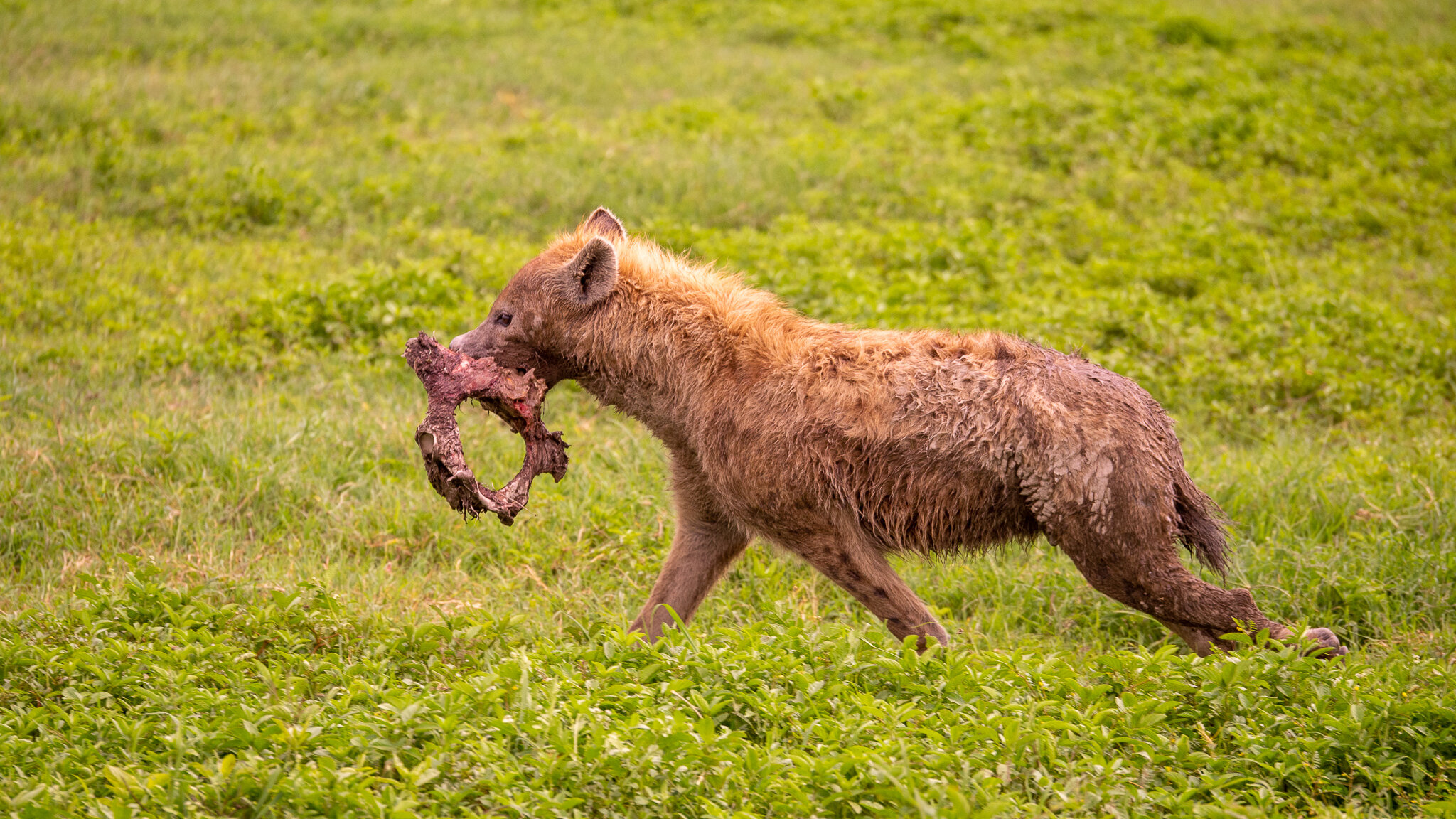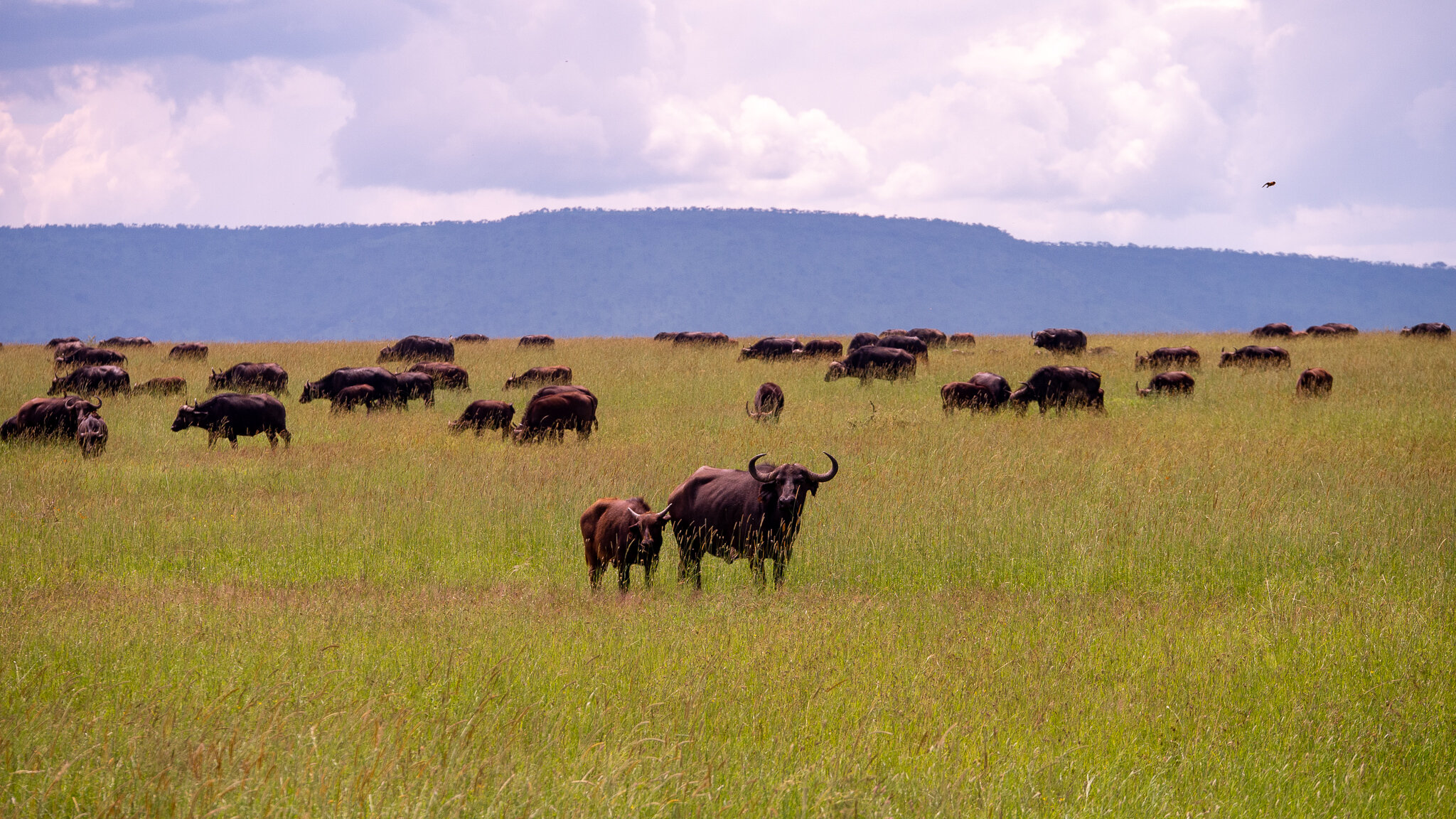How to Encourage Sustainable Tourism in Africa
Until recently (thanks Covid), tourism has been one of the fastest growing industries and a significant source of income for many countries around the world. African tourism growth is the second fastest in the world (after Asia), with a total of over 67 million tourists visiting the continent in 2018 (pre-pandemic).
While that's great in terms of the economic growth and job creation prospects, an increase in tourism also results in increase in negative consequences such as a loss of cultural heritage, ecological degradation, social issues and a decrease in economic independence for the local populations.
Now you're probably wondering… How tourism can increase economic growth (hello job creation) while at the same time, decreasing economic independence?
How can tourists create social problems when their money contributes towards new opportunties?
How can there be a loss in cultural heritage when this very thing is what draws tourists to the area?
We may be aware that air travel causes pollution, but many people have trouble deciphering how tourists themselves destroy the local ecosystems. And that's okay! If you don't know all the answers to these questions, well done, because you’ve come to the right place!
Sustainable tourism means travelling in a way that reduces or limits ones negative impact on the local society, environment and economy while at the same time, maximising the positive impacts on the aforementioned factors.
Unfortunately, even though sustainable tourism is increasing in popularity, we still have a ways to go. So, I wanted to outline a couple of ways to encourage and promote sustainable tourism, particularly in Africa - a continent very near and dear to my heart (as well as where I’ve been camped out for covid!)
Establish protected areas
It is no secret that wildlife plays a huge role in drawing foreign travelers to the African continent. In fact, according to the World Travel and Tourism Council, wildlife tourism brought over $29 billion dollars to Africa in 2019 and served as the basis for the employment of 3.6 million people. These numbers are hugely significant and considering the fact that over half of all wildlife tours booked globally are booked in an African country, the figures should come as no surprise.
The diverse, unique wildlife offerings are a huge pull for the local tourism industry - and make Africa unlike any other continent. And without sustainable practices in place to preserve these precious ecosystems - a large source of what makes Africa special and draws in tourists from around the world, could be lost.
One way governments can work to preserve these areas is by establishing protected areas. Protected areas are geographical locations (such as National Parks, etc) that are legally managed in order to conserve nature, ecosystems and local culture. Creating such areas allows governments to crack down on illegal poaching, illegal wildlife trade and the destruction of natural habitats.
For example, in Namibia, local populations were having trouble coping with wild animals destroying their crops and at times even physically harming members of their society. Farmers naturally responded to this by poaching these animals in order to protect their livelihoods and their families.
To rectify this, the Namibian government began educating local communities, providing them opportunities to improve their livelihoods, investing in the areas on the outskirts of national parks, and even created programs to turn poachers into animal PROTECTORS.
By doing so, the Namibian government sent a message, not only the local population, but to the world that wildlife is precious - and instilled a dedicated group of wildlife protectors and ambassadors to subsequently share that message with tourists. The overall result is a shift away from unsustainable wildlife poaching and trafficking and towards sustainable wildlife tourism.
Consequences for disrespecting local culture
The above example showed how respecting the the local wildlife can go a long way towards promoting sustainable tourism. But what about respect for the local people?
Tourists obviously recognize the intellectual and psychological benefits of cultural exchange, hence why they are traveling to the culturally diverse continent of Africa in the first place. Part of the draw to this area of the world is to experience something markedly different from back home…to learn about unique cultural activities, festivals, sites and rituals.
Such tourism in Africa can do wonders to reduce xenophobia, racism and remind us that we’re not so different from each other. We all laugh, cry, smile in the same language, after all.
Although cultural tourism is clearly a beautiful thing, it can have its downfalls. These downfalls are derived mainly from the fact that tourists often forget that the place they are visiting is someone else’s home and it it deserves respect. You cannot waltz into someone else’s home and do whatever you please (as you might in your own home).
In Egypt, for example, tourists often come from far and wide to explore the great pyramids which house the tombs of ancient leaders. These pyramids are rich in culture and history and represent a significant part of Egypt’s heritage and the legacy of former Kings. So naturally, one might think that climbing them would be a bad idea right? Wrong. Many tourists over the years have traveled to Egypt and climbed, among others, the great pyramid of Giza. In 2018, a pair of Danish tourists had a naked photoshoot at the top of the over 4,500-year-old pyramid. This was considered deeply offensive by the local people who were outraged and called for legal action.
Police arrested those that participated in the climb - but it would not be the first or the last time that something like this happened. The Egyptian parliament has since responded by making it illegal to scale the pyramids. This was a great move, to augment the existing 1983 law which made it strictly forbidden to deliberately destroy or disfigure a monument. Such offenses are punishable by imprisonment and the payment of heavy fines. One can even be permanently banned from entering the country.
Egypt’s move will surely curb the desire for tourists to commit such acts. However, more education is necessary to ensure that tourists do their homework before traveling - figure out the dos and don’ts of the place you’re visiting and always respect the local culture. Remember, this is someone else’s home that you are walking into….you gotta play by their rules.
Offering benefits to sustainable tourism business
As evidenced by the naked climbers in Egypt, there are many people out there who have no idea about the importance of being a responsible tourist. However, one group that can lead the way in educating travelers is the tourism industry itself! By offering sustainable tours and teaching the do’s and don’ts of responsible travel, the industry can share their knowledge and make an impact on future generations. The Responsible Tourism Awards is one example of an institution that is aimed at rewarding, recognizing, and encouraging universal education on sustainable tourism.
Established in 2004, the responsible tourism awards are split into 3 regions, namely Africa, India and the rest of the world. A winner is announced in the regional category and then goes on to compete globally. The awards serve to not only educate the masses but inspire and challenge anyone involved in the tourism industry to conduct themselves and their businesses in a more sustainable and responsible fashion.
In 2019, the Two Oceans Aquarium in South Africa won the responsible attraction award. It is one of few aquariums which put ONLY local animals on display rather than enticing tourists with exotic animals. The aquarium hosts educational events, and participates in conservation programs for marine life. All of this displays a sustainability message not only to tourists and visitors but to other tourism businesses. The company demonstrates sustainable and responsible values AND inspires others to seek out other business and experiences that meet these standards.
Rewarding & recognizing business that uphold sustainable values, especially in Africa, where there is a lack of awareness & understanding of the benefits, is important in order to implement more sustainable tourism projects. Really - it’s a WIN-WIN. Because the winners of these awards receive a boost in marketing, AND the message of sustainable tourism is placed front and center.
Through more programs such as this, we can encouraging sustainable practices in tourism and improve the overall sustainability of all of Africa.
Spreading Awareness
Although a lot can be done by the government, tour operators and anyone working in the tourism industry, even more can be done by YOU, the tourist.
Afterall, there are more of you than there are of them. And if no one knows about sustainable tourism, relevant practices can’t be implemented. We need everyone to do their part in order to make a meaningful impact. Thus, the best way to encourage sustainable tourism in Africa is to TALK ABOUT IT. Talk about it at school, at work, in the middle of safaris, on tours, at hotels, at every single tourism destination and last but not least, at home.
When you’ve returned from a life changing trip, make sure you share not only your thousands of photos - but the message of sustainable travel and how you’ve implemented better habits to preserve these destinations for future generations. This movement needs you, your friends, your family, your colleagues, the tourism industry - and everyone it can get. And trust me - the world, and your future children….and grandchildren….will thank you for it!











